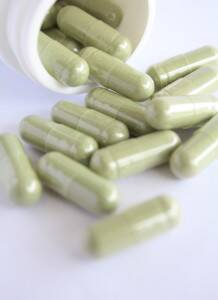 A recent study conducted at The University of Nottingham and reported in Ob.Gyn. News shows DHEA does not improve IVF outcomes in women with diminished ovarian reserve Reproductive endocrinologists for years have sought an elixir that would help women with low numbers of follicles produce more eggs and, hopefully, have a higher chance of a successful pregnancy. DHEA (a weak androgen sold over-the-counter) has been the flavor du jour for the last few years. The idea is intriguing: women with polycystic ovary syndrome have lots of follicles and higher androgen levels. Maybe women with low numbers of follicles could benefit from supplemental androgens to promote survival of the growing follicle pool.
A recent study conducted at The University of Nottingham and reported in Ob.Gyn. News shows DHEA does not improve IVF outcomes in women with diminished ovarian reserve Reproductive endocrinologists for years have sought an elixir that would help women with low numbers of follicles produce more eggs and, hopefully, have a higher chance of a successful pregnancy. DHEA (a weak androgen sold over-the-counter) has been the flavor du jour for the last few years. The idea is intriguing: women with polycystic ovary syndrome have lots of follicles and higher androgen levels. Maybe women with low numbers of follicles could benefit from supplemental androgens to promote survival of the growing follicle pool.
There was some promising scientific data to support the concept, but the clinical efficacy was not well proven. Yes there were some miraculous-sounding success stories reported here and there, but that wasn’t enough to prove whether DHEA works.
DHEA is not expensive and is well tolerated, so why not just take it any way? One cause for concern is that the proponents of the DHEA concept advocate waiting for 3-4 months while the DHEA has time to have its purported benefit on the growing follicle pool. If there is one thing for certain in reproductive medicine it is that time is not on our side and delaying attempts at pregnancy to garner an unproven benefit from DHEA is a risky proposition.
Now, the media has been reporting news out of the annual meeting of the European Society of Human Reproduction and Embrology, held last month in Lisbon. A randomized controlled trial – the gold standard of clinical research – demonstrated that women predicted to have a low response in IVF did not benefit from taking DHEA. DHEA may be just the latest in a long list of failed attempts to improve ovarian responsiveness. At the current time we still allow our patients to take DHEA, but do not strongly recommend it and also do not recommend delaying fertility treatment for months to obtain an illusory benefit.
Full Article in OBGYN News: DHEA unable to turn the tide of ovarian aging
Blog post by Dr. Eric J. Forman, MD, FACOG
Reproductive Medicine Associates of New Jersey Morristown, NJ
View more blogs by Dr. Forman or follow him on Facebook & Twitter